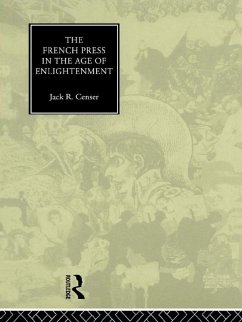
Thinking about the Enlightenment
Modernity and its Ramifications
Herausgeber: Davies, Martin
Thinking about the Enlightenment looks beyond the current parameters of studying the Enlightenment, to the issues that can be understood by reflecting on the period in a broader context. Each of the thirteen original chapters, by an international and interdisciplinary team of contributors, illustrates the problematic legacy of the Enlightenment and the continued ramifications of its thinking to consider whether modernity can see its roots in the intellectual revolution of the seventeenth and eighteenth centuries. Drawing from history, philosophy, literature and anthropology, this book enables ...
Thinking about the Enlightenment looks beyond the current parameters of studying the Enlightenment, to the issues that can be understood by reflecting on the period in a broader context. Each of the thirteen original chapters, by an international and interdisciplinary team of contributors, illustrates the problematic legacy of the Enlightenment and the continued ramifications of its thinking to consider whether modernity can see its roots in the intellectual revolution of the seventeenth and eighteenth centuries. Drawing from history, philosophy, literature and anthropology, this book enables students and academics alike to take a fresh look at the Enlightenment and its legacy.















